Bonfire in Marul
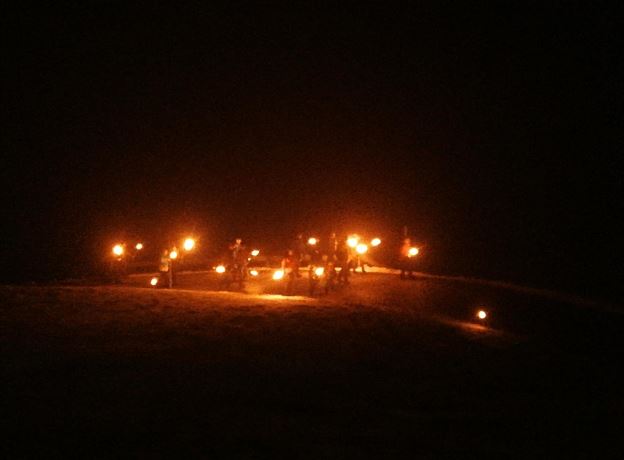
Bonfire in Marul.
08.03.2025
Anyone travelling in Vorarlberg on the first weekend after Ash Wednesday will be amazed by burning wooden towers and imposing fires everywhere. In Großes Walsertal, you will encounter boys parading through the villages with elaborately decorated torches.

Bonfire in Marul.
08.03.2025
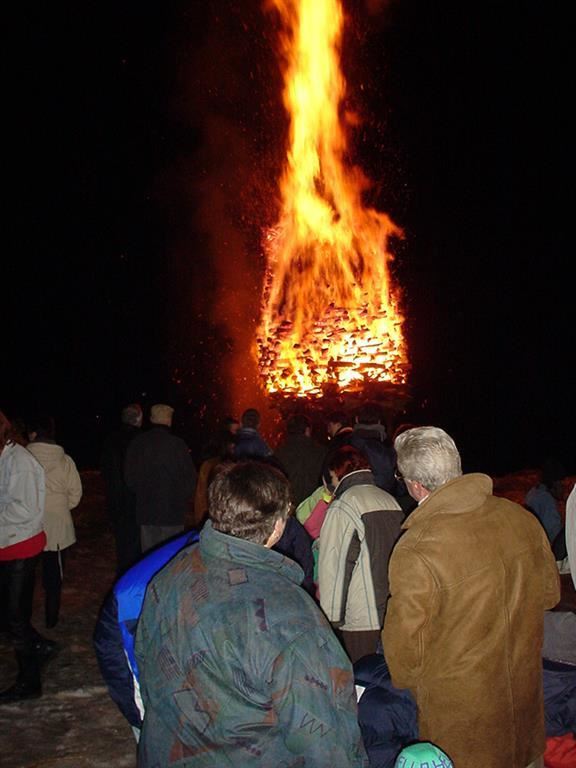
Experience tradition on Ludescherberg
08.03.2025
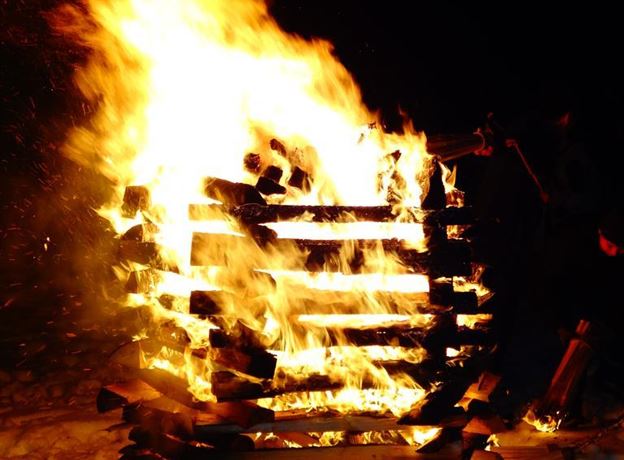
Experience tradition in Buchboden
08.03.2025
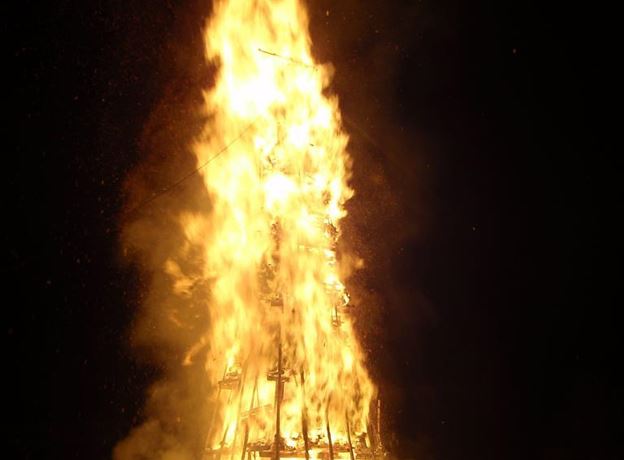
Spark burn-off at Thüringerberg
08.03.2025
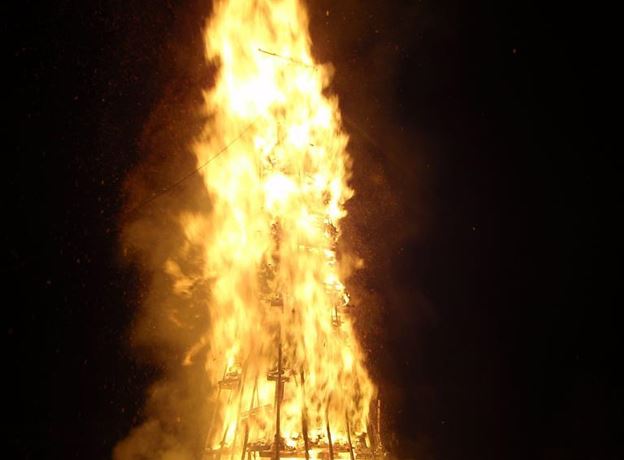
Experience tradition in Blons
08.03.2025
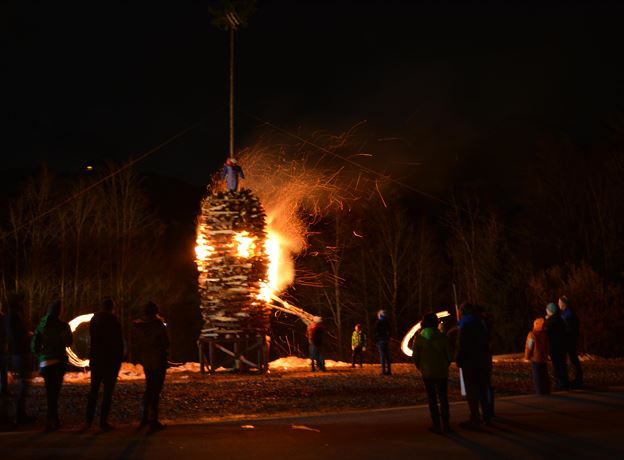
Experience Tradition in Sonntag
09.03.2025
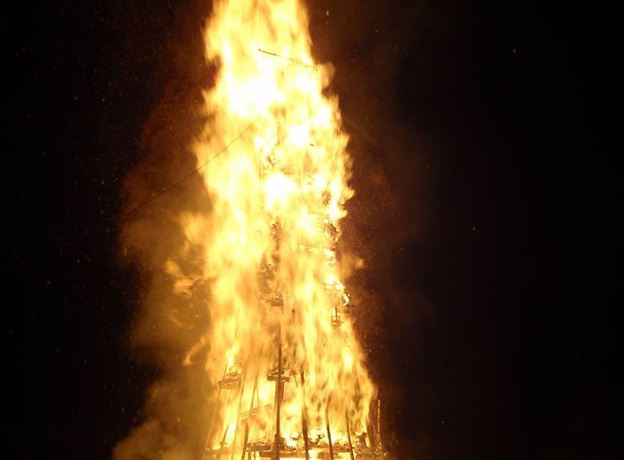
Experience tradition in Garsella
09.03.2025
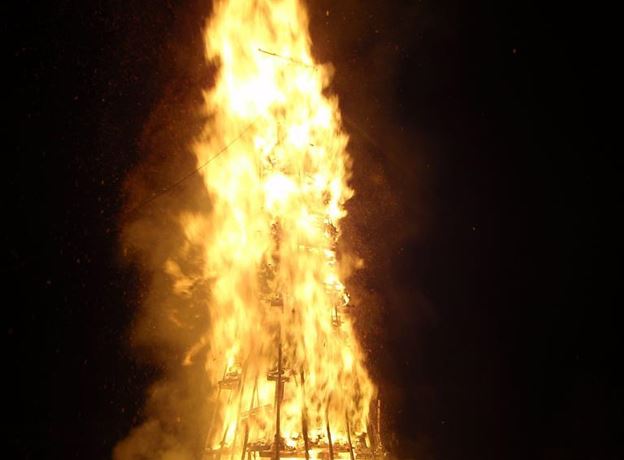
Bonfire in Raggal
09.03.2025
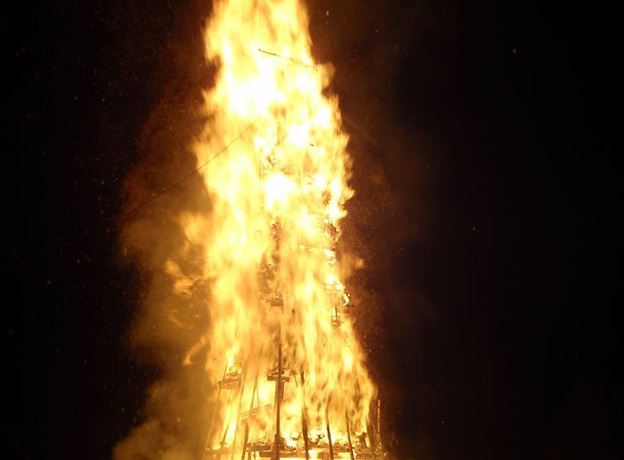
Bonfire in St. Gerold
09.03.2025
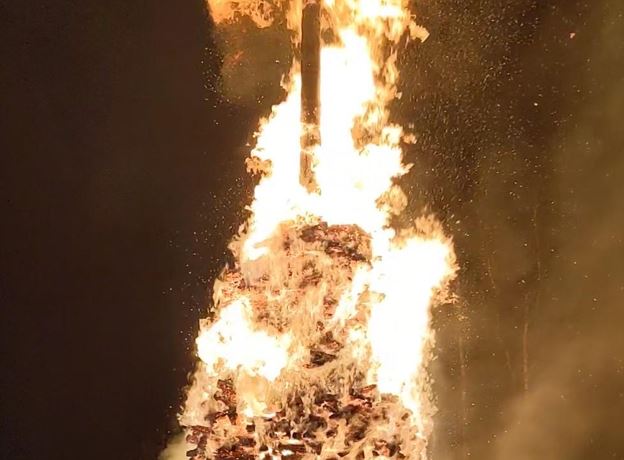
Burning off the Funken- a traditional practice in Vorarlberg to symbolically drive away winter.
09.03.2025
The traditional "Funkenabbrennen" (burning of the sparks) is an ancient Swabian-Alemannic tradition, the origin is not completely clear. Some may think that the burning of wooden towers and witch dolls is a remnant of the terrible witch burnings in early modern times, but this is a misconception! The origins of the fires can be found, on the one hand, in ancient pagan fertility rites with sacrificial fires, and on the other hand, in the end of the Swabian-Alemannic "Fastnacht" and the beginning of Carnival. In Vorarlberg, the practice of "Funken" has a long tradition; in almost every community, a spark fire is organized by the local spark guild, the local fire department or the carnival guilds. In 2010, Vorarlberg's "Funkensonntag" was even included in the world cultural heritage.
Every year on "Funkensonntag" (Sunday of the weekend), the so-called "Funkentanne" is lit. This is a piled wooden tower, consisting of collected materials, such as old Christmas trees. According to popular belief, the spark is supposed to drive away winter and ignite happiness. As a symbol of the beginning of spring is the winter witch, which is attached to the top of the spark. It is usually prepared with black powder so that it can explode in the fire. Once the spark is lit, the spark master gets nervous... not without reason! He waits for the witch to explode - if it does not, it must be buried the next day.
In Vorarlberg, "Funkensonntag" has a second name: "Chüachlisu(o)nntig" - here the name says it all! The delicious little cakes, also called "Polsterzipfel", not only make the hearts of the spark guild members beat faster. Eating "Fonkachüachli" is a must during a visit to the Funken - and if you can't get enough of it, you can easily bake the pastry at home - here's the recipe.
There are numerous exciting customs surrounding the "Funken" which are carried out differently in each valley - even in the individual villages. Some Walser customs are still lived as vividly today as they were 100 years ago.
In all villages of the valley (except Thüringerberg) the so-called "Chrochna" walk from house to house in the time between the end of Sunday mass and darkness. "Chrochna" are girls of school age and smaller boys who knock on the front doors of the Walser and recite their "Chrochnasprüchli". For this they get a coin, in some houses also "Fonkachüachli". In addition to the names "Fonkasu(o)nntig" and "Chüachlisu(o)nntig", this day therefore also bears the name "Chrochnasu(o)nntig".
Fachilibuaba are boys between the ages of 10 and 15 who walk from house to house with torches elaborately bound from wood and sometimes decorated with large "taps" (round shavings) and crepe paper.
Raggal, St. Gerold und Blons
In the communities of Raggal, St. Gerold and Blons-Dorf, the "Fachilibuaba" meet in the late afternoon and move in groups from house to house. In Blons-Valentschina they meet already at noon, but light their torches only in the evening, when they meet the boys from Blons-Dorf. In these three villages it is the custom that the houses in the center are visited by all the "Fachilibuaba" together in honor.
Sonntag, Buchboden und Fontanella
In Sonntag, Buchboden and Fontanella the torches lean against the church wall during the Sunday mass, because immediately after the blessing the "Fachilibuaba" are allowed to go out. But the torches are lit only in the evening, when the boys approach the spark. They swing the torches and draw their circles until they finally light the spark.
Sources:
Vorarlberg Tourismus, Wikipedia, UNESCO Funkensonntag, https://cdn3.vol.at/2008/03/Infos_funken.pdf, https://www.grosseswalsertal.at/de/REGIO/Die_Region_Grosses_Walsertal/Geschichte_und_Kultur/Fonkasonntig_oder_Chueachlisonntig, Heimatleuchten: Wilder Winter
A short moment
We prepare the content…